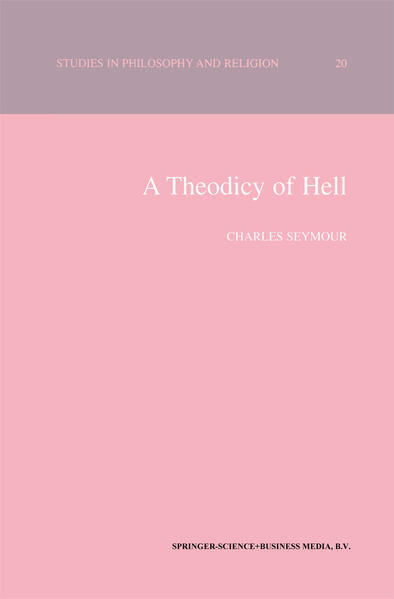
Sofort lieferbar (Download)
In A Theodicy of Hell Charles Seymour tackles one of the most difficult problems facing the western theistic tradition: to show the consonance between eternal punishment and the goodness of God. Medieval theology attempted to resolve the dilemma by arguing that any sin, no matter how slight, merits unending torment. Contemporary thinkers, on the other hand, tend to eliminate the retributive element from hell entirely. Combining historical breadth with detailed argumentation, the author develops a novel understanding of hell which avoids the extremes of both its traditional and modern rivals. He then surveys the battery of objections ranged against the possibility of eternal punishment and shows how his `freedom view of hell' can withstand the attack. The work will be of particular importance for those interested in philosophy of religion and theology, including academics, students, seminarians, clergy, and anyone else with a personal desire to come to terms with this perennially challenging doctrine.
Inhaltsverzeichnis
1: Introduction. - 2: A Brief History of Hell. - 3: The Argument from Justice. - 4: Arguments from Divine Love. - 5: Arguments from Human Choice. - 6: The Freedom View Compared with Rival Versions. - 7: Theodicy and Theology. - Works Cited.
Produktdetails
Erscheinungsdatum
09. März 2013
Sprache
englisch
Auflage
2000
Seitenanzahl
210
Dateigröße
22,56 MB
Reihe
Studies in Philosophy and Religion
Autor/Autorin
C. Seymour
Verlag/Hersteller
Kopierschutz
mit Wasserzeichen versehen
Produktart
EBOOK
Dateiformat
PDF
ISBN
9789401706049
Entdecken Sie mehr
Pressestimmen
' I gladly recommend the book as a rich source of intriguing philosophical arguments. '
International Journal for Philosophy of Religion, 52 (2002)
International Journal for Philosophy of Religion, 52 (2002)
Bewertungen
0 Bewertungen
Es wurden noch keine Bewertungen abgegeben. Schreiben Sie die erste Bewertung zu "A Theodicy of Hell" und helfen Sie damit anderen bei der Kaufentscheidung.









